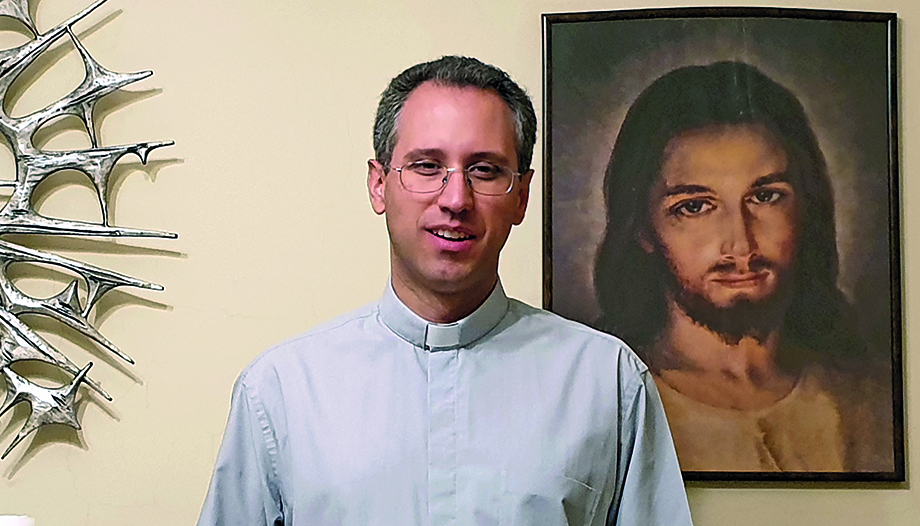Pope Francis has accepted the invitation of the country's president, Kasym-Jomart Tokaev to attend the VII World and Traditional Religions Congresss, in the city of Nur-Sultan. We interviewed Eduardo Calvo, a Spanish priest working in the Asian country.
Kazakhstan awaits the second visit of a Pope: after the experience of John Paul II's visit in 2001, how is the young Church preparing now?
-With joy and enthusiasm. It is a stimulus for all of us in our faith. We live in an environment of great religious indifference, where the Christian religion is a minority. The majority of Christians are of Orthodox tradition and many people hardly know what it means to be Catholic. The Pope's visit helps us all to see that our faith is alive, that it is "catholic" (international). It also reminds us that the Catholic faith is part of the religious roots of this land, where there have been Catholics since the first centuries of the Church's history, before the appearance of Islam.
Is the visit of a religious leader such as the Pope well accepted in a multicultural society?
-Totally. Moreover, I dare to say that, in general terms, it is not only accepted, but also loved and desired. There are many people of other faiths who are happy that a person of the Pope's worldwide transcendence is coming to the country.
Kazakhstan is a very tolerant and diverse country. People are used, since childhood, to coexist and relate very naturally with people of other nationalities and other faiths. Here it is normal that people from different cultures are friends and are not even aware that this diversity could have been an obstacle in their lives to be united and relate with cordiality. After all, we are human beings... in substance we are the same: we seek to love and to be loved, we like to walk and laugh, we have similar problems, we live in the same environment...
How is the country recovering after the unrest in its main city, Almaty, in January of this year? Could the climate of insecurity that prevailed at that time affect the Pope's visit?
-The feeling of those of us who are here is that "the page has been turned". Those incidents endangered our coexistence and, I would dare say, also our democracy. They are part of the past and we have returned to ordinary life, with its lights and shadows. Every country has its pluses and minuses. It hurts me to hear sometimes in Spain comments made with an air of superiority, looking at Central Asian countries (such as Kazakhstan), as if they were "second class" countries, inferior not only economically or politically, but also morally or socially... I think it is deeply unfair and far from the truth.
The current situation is peaceful. The Pope's visit is also a gift for non-Catholics, an encouragement. His visit reminds us that he loves us and takes us into consideration.
The Pope has canceled other recent trips for health reasons, yet he wanted to keep this trip, which he described as "calm" on his return trip from Canada. Do you see other reasons why the Pope has been able to keep this trip on his schedule?
-The reason, I believe, is your desire to dialogue with other Christian confessions and with people of other faiths, to deepen the much we have in common and the need to live together as brothers and sisters, belonging to the same family. In this sense, your intention to participate in this world meeting of religious leaders is understandable. Today, it seems to me that it is vitally important to join forces to combat religious radicalism and promote peace.
What vision of the Church in Asia can the Kazakhstan community bring to the Pope?
-I think the Pope is quite aware of the situation we live in. He knows about our difficulties and our dreams. We can bring him our affection, with a greater physical closeness. We can share with him our prayers and our desire for this Church in minority to grow, to proclaim the Gospel, to be devoted to others, to prosper not only economically but also spiritually... The Catholic Church here is alive and growing. Thanks be to God, many Christians here are not foreigners, but local people and many of them have come to the faith through the witness of other Catholics and not through family tradition.
There has been talk of the strategic importance of this visit of the Pope to Kazakhstan at this time, considering the country's links with the Slavic world and the significant presence of Russian and Ukrainian populations living there. Do you think that this trip could contribute something to the process of pacification of the nearby conflict in Ukraine?
-The Holy Father wants to be very close to those who suffer. The conflict in Ukraine is of a global order. I have no doubt that he is doing what he can to defuse the situation. Kazakhstan, because it is situated on neutral territory, because of its open character and because of the presence in the country of people of all nations, I think it is a good place for the Catholic Church, with the Pope at its head, ask the whole world to reign in peace and love.








